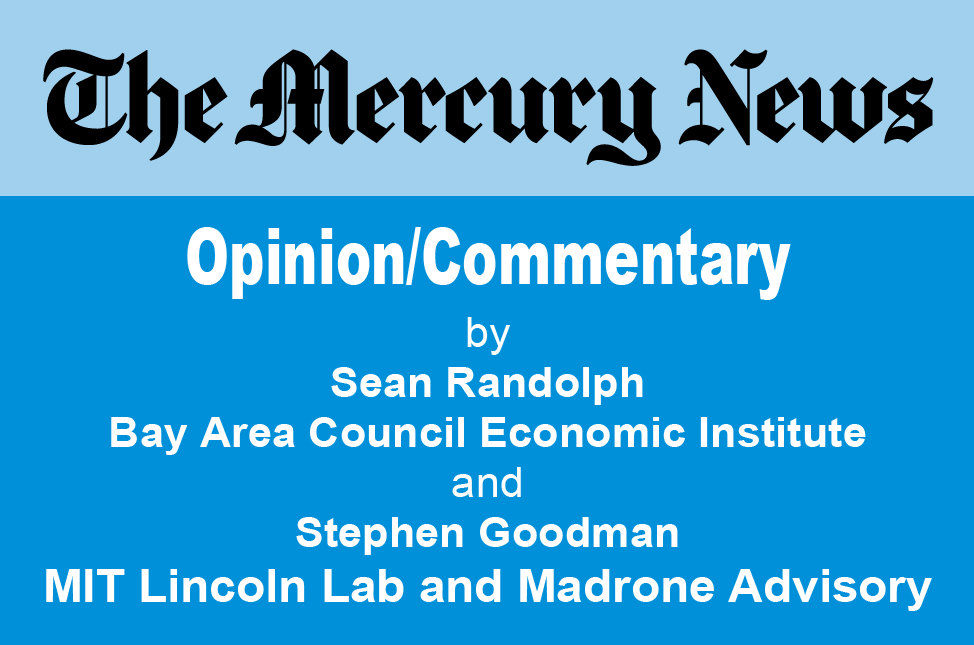
Technology is central to our economy and society and will continue to shape our future.
While the world shelters in place from the coronavirus and we all are riveted to the daily news cycle, planning is already starting for what the world will look like when today’s crisis is over.
Will the virus kill Silicon Valley’s seemingly unstoppable engine? How will industries change, and which sectors will emerge from the crisis stronger? While the answers for the macroeconomy remain unclear, patterns for technology are starting to emerge.
Technology companies have taken hits on issues ranging from online privacy to their impact on the cost of housing, but today’s crisis makes clear the centrality of technology to our economy and society. It also brings home the critical importance of the innovation that is happening in Silicon Valley.
While working from home, most of us are connecting on platforms such as Zoom, Slack, and Microsoft Teams, LinkedIn and Google Hangouts. Facebook is keeping us in touch. Instacart, Postmates, DoorDash and UberEats are delivering to our doors. And most of us are watching Netflix and You Tube. What is remarkable is that almost all are Bay Area companies, located within 50 miles of SFO.
The drive to discover COVID-19 vaccines and treatments is also being led from the Bay Area:
Institutions such as Stanford, UCSF and Gladstone Institutes are in the hunt for treatments, vaccines and testing technologies. So is a small army of startups and young companies such as Cepheid and 23andme. Large companies like Gilead Science and Genentech are deep in clinical trials. Alphabet’s Deep Mind artificial intelligence unit is focusing on vaccines, while its Verily Life Science research arm addresses virus detection. Intel is working with Hong Kong’s Lenovo and Shenzhen’s BGI to speed genomic sequencing of the virus through supercomputing. Google and Apple are collaborating on smart-phone technology to enable global contact tracking, reaching one-third of the world’s population.
Here are some take-aways:
- Innovation is collaborative and often global: Biotech companies in Silicon Valley, Boston, China, Europe and elsewhere are attacking the COVID-19 challenge on a broad front, often together.
- Science matters: Federal budget proposals advanced by the Trump Administration routinely gut scientific research. Fortunately, Congress has ignored them and continues to fund science. That support is bedrock for technological advancement and should grow in future budgets.
- Governance is important when addressing global challenges: While rooted in national systems, responses must be integrated to be fully effective.
What will the new world look like from a technology standpoint? In the near-term:
- Innovation ecosystems will rise to the challenge as societies and economies reconfigure;
- While many startups will shrink or fail, valuations will drop and investment terms will tighten, ample venture funding will be available for the right companies;
- Patient capital will make longer-term bets on “tough-tech”;
- Cybersecurity, the industrial internet (IoT), biotechnology, and quantum computing will attract new research and investment;
- Internet-based management, distributed work, distance learning, and telemedicine will become more robust;
- Robotics and automation will transform manufacturing and services at an accelerated pace;
- Advances will be built on hybrid cloud computing that leverages big data analytics.
- Supply chains will shift as the vulnerability of over-reliance on a single country – for example on China for electronic components or medicines – becomes clear. This is the time for U.S. investment in advanced manufacturing to move forward.
Strong companies have been built in challenging times. As need and necessity drive markets, new technologies and companies will emerge to meet them. As that happens, innovators and investors will continue to place their bets in Silicon Valley and other technology centers where science, financial capital, and human capital concentrate.
Sean Randolph is senior director at the Bay Area Council Economic Institute (www.bayareaeconomy.org). Stephen Goodman is an adviser to the Institute and MIT Lincoln Lab, and a founder of Boston and Bay Area-based Madrone Advisory. This commentary was published by The Mercury News on May 1, 2020. https://www.mercurynews.com/2020/05/01/opinion-what-will-the-world-look-like-when-covid-19-crisis-is-over/